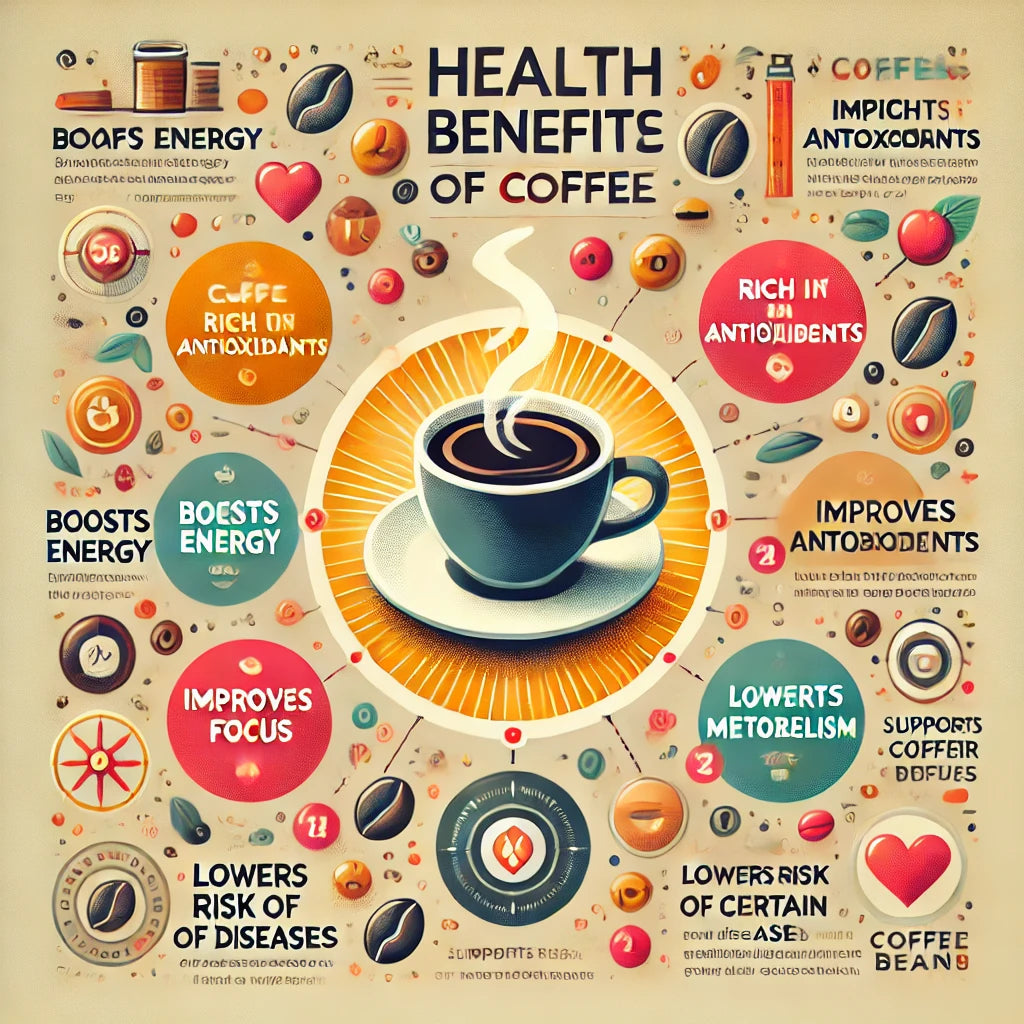Ah, coffee, my coffee. That magical elixir that not only jump starts my morning, but drives my passion to produce it better and more complex, every day. To enjoy the true culinary aspects of the drink. To tinker, to toil, to experiment, to taste, and try it all over again.
If you’re like me, chances are you don’t think much about anything involving coffee other than how to make it, and how to taste it. But coffee is very much more than all that. It is the world’s most complex food item and along with that baggage comes the effect and impact coffee has on our bodies. And just like what seems forever, every time some new health benefit is discovered regarding coffee, there’s also some potential detriments.
I did a bit of a deep dive into where we are in the last twelve months vis a vis the latest research and studies into coffee and health. For the most part, science is finding more and more joy and benefits in our daily cup. Especially when it comes to your brain, heart, and blood sugar. Let’s dive in a bit.
Brainpower in Every Cup?
So beyond coffee getting us awake and keeping our brains humming along nicely during the day, it also is looking out for the grey matter sitting behind our eyeballs.
Recent studies suggest that moderate coffee consumption could help protect against cognitive decline and those dreaded neurodegenerative diseases like Alzheimer’s and Parkinson’s. Instead of just increasing alertness and improving blood flow, coffee appears to have a more direct impact on brain health by potentially reducing the risk of these serious conditions
One study even found that increasing your coffee intake from one to two cups a day could lead to an 8% decrease in “executive function decline” – that’s basically your brain’s ability to plan, focus, and remember things. Who needs brain games when you have coffee, right?But before you start chugging espresso like it’s water, there’s a catch. A 2023 study found that regular caffeine users might experience reduced “brain plasticity,” which is your brain’s ability to change and adapt. This could affect learning and memory. More research is needed to fully understand how caffeine impacts brain plasticity in the long run, and it’s worth noting that some people are more sensitive to the effects of caffeine than others. If you find yourself feeling anxious, jittery, or having trouble sleeping after your coffee, it might be a sign to cut back.
Coffee and Diabetes: A Sweet Surprise?
For those with diabetes or worried about developing it, here’s some good news. Studies suggest that coffee might actually help regulate blood sugar levels and reduce the risk of type 2 diabetes. This could be due to coffee’s ability to improve insulin sensitivity, which means your body can use insulin more effectively to control blood sugar.
However, it’s important to remember that caffeine can affect blood sugar levels differently in different people. While some studies show a positive effect, others suggest that caffeine might temporarily raise blood sugar levels in some individuals with diabetes.
If you have diabetes, it’s best not to take advice from some anonymous blogger, but instead, talk to your doctor about how coffee might affect your blood sugar and how much you should be drinking. Because this is a very serious thing, and I’ve been careful to include all my sources below on this subject, but yeah, talk to doc!
In an interesting side note, some studies indicate that decaffeinated coffee might offer similar benefits, suggesting that other compounds in coffee besides caffeine could be contributing to these positive effects.
A Healthy Heart with Every Sip?
OK – AI gave me that title, and it’s just corny enough that I think I’ll keep it. But in all seriousness, even more research has come out to suggest that moderate coffee consumption could be good for your heart health too. Boo yah! It seems that coffee’s antioxidants and anti-inflammatory properties might be playing a protective role here.
Even more intriguing, a study this year found that moderate consumption of coffee and caffeine may protect against developing multiple cardiometabolic diseases, including type 2 diabetes, coronary heart disease, and stroke11. This suggests that your daily coffee habit could have broader benefits for your overall metabolic health. I am totally down for that.
Coffee, Liver Heath and Cancer Protection
Beyond its benefits for your brain, heart, and blood sugar, coffee might also offer some protection against certain types of cancer. Research has shown that higher coffee consumption is associated with lower rates of colon, rectal, breast, and endometrial cancers. While more research is needed to fully understand this link, it’s another potential perk to add to coffee’s growing list of health benefits.
Your liver might be thanking you for that cup of coffee too! Some studies suggest that coffee could support liver health and protect against liver disease. This could be due to coffee’s ability to reduce inflammation and oxidative stress, both of which can contribute to liver damage. While more research is needed in this area, it’s another reason to feel good about your coffee habit.
The Bottom Line: Enjoy Your Coffee, But Keep It Balanced!
So, what’s the takeaway from all this coffee talk? It seems that moderate coffee consumption – around three to four cups a day for most adults – can offer a range of health benefits, from boosting brainpower and protecting your heart to potentially reducing the risk of diabetes and certain cancers. But as with most things in life, moderation is key.
Remember to listen to your body and be mindful of how coffee affects you. If you have any concerns, especially if you have existing health conditions, it’s always a good idea to chat with your doctor. Now, while you’re diving deep into your third americano for the day, here’s some of the works I researched for this article, if you want to dive even deeper than I did.

